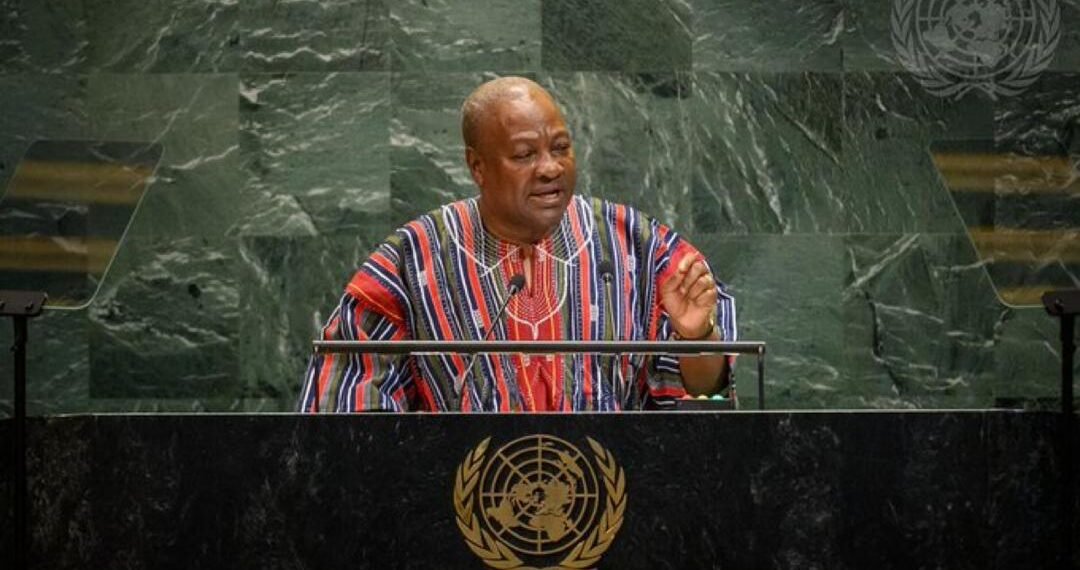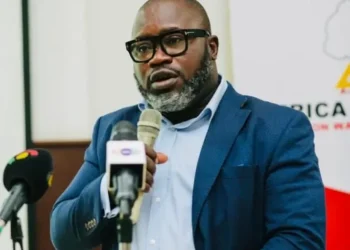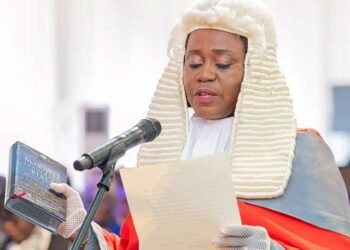At the 80th United Nations General Assembly (UNGA) in New York, Ghana’s President John Dramani Mahama delivered a firm and uncompromising message on the Israel-Palestine conflict, demanding an end to what he called “the crimes in Gaza” and urging renewed global commitment to a two-state solution.
His remarks underscored Ghana’s longstanding position on the matter and drew attention to what he described as grave injustices against the Palestinian people.
President Mahama condemned the denial of visas to President Mahmoud Abbas and the Palestinian delegation, warning that such an act “sets a bad precedent and should be deeply worrying to all member nations of the United Nations.”
For Ghana, which recognized the State of Palestine in 1988, the denial not only undermined diplomatic fairness but also eroded the principles of inclusivity and dialogue that the UN is built upon. Reaffirming Ghana’s policy stance, President Mahama rejected suggestions that the two-state solution would serve as a political concession to Hamas.
“Contrary to the claims of some, a two-state solution would not be a reward for Hamas. It would rather be a retreat for the hundreds of thousands of innocent women and children, and people who are facing collective punishment and forced starvation for no reason other than the fact that they are Palestinian”.
Ghana’s President John Dramani Mahama
In an unflinching tone, President Mahama chastised the global community for its inability to call the atrocities in Gaza by their rightful name. He argued that, for nearly two years, members of the General Assembly had engaged in what he termed “hide-and-seek with language” to avoid describing the unfolding crisis for what it truly is.
“It doesn’t matter what you call it. If it looks like a duck, it swims like a duck, well then it must be a duck. The crimes in Gaza must stop. The crimes in Gaza must stop.”
Ghana’s President John Dramani Mahama
President Mahama’s intervention reflected growing frustration among many Global South nations about what they perceive as selective moral outrage in international diplomacy.
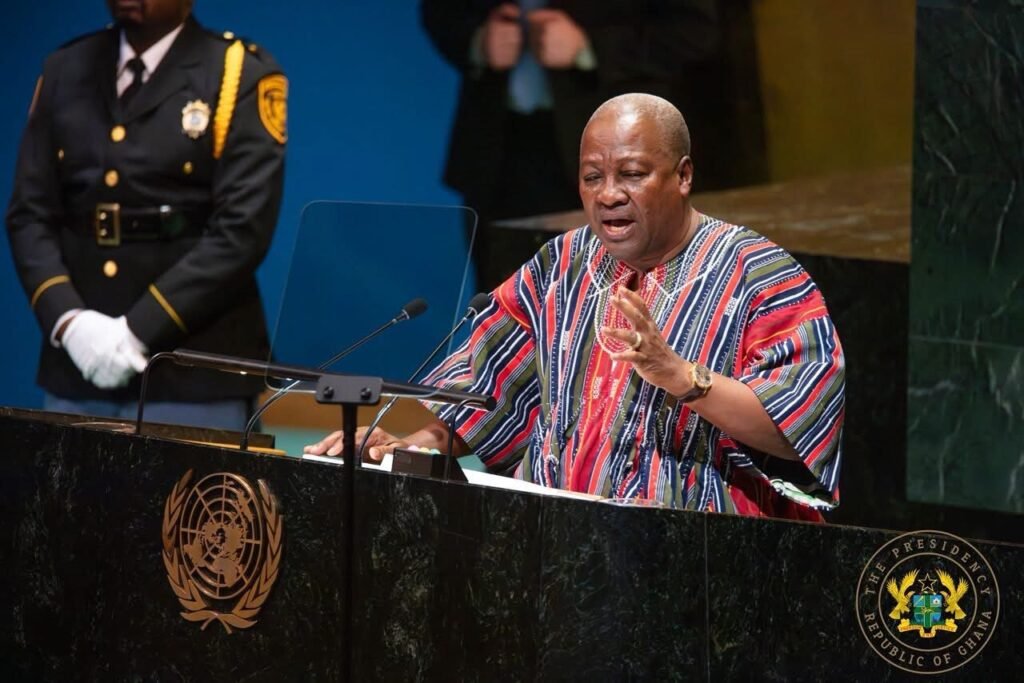
He pointed to the suffering of Palestinians as a matter of global conscience, warning that failure to act decisively risks perpetuating cycles of violence and instability in the Middle East.
The Sudan Crisis
Shifting attention to another pressing crisis, the Ghanaian leader also spoke on the devastating conflict in Sudan, which the UN has described as the world’s largest humanitarian disaster today.
According to President Mahama, some 12 million people have been forced to flee their homes, creating a massive wave of displacement that should compel urgent international solidarity.
“When we speak of migration, we refer to the 12 million new Sudanese refugees whom we as a global community should be willing to assist in much the same way that many member nations readily assisted new refugees coming out of Ukraine”.
Ghana’s President John Dramani Mahama
His words sought to highlight what he sees as a double standard in global humanitarian responses—swift and generous in some regions, hesitant and selective in others.
By linking the suffering in Gaza to the crisis in Sudan, President Mahama framed both conflicts as symptoms of deeper failures in global governance. He called for equal application of humanitarian principles, regardless of geography, race, or politics, urging the international community to move beyond rhetoric to concrete action.
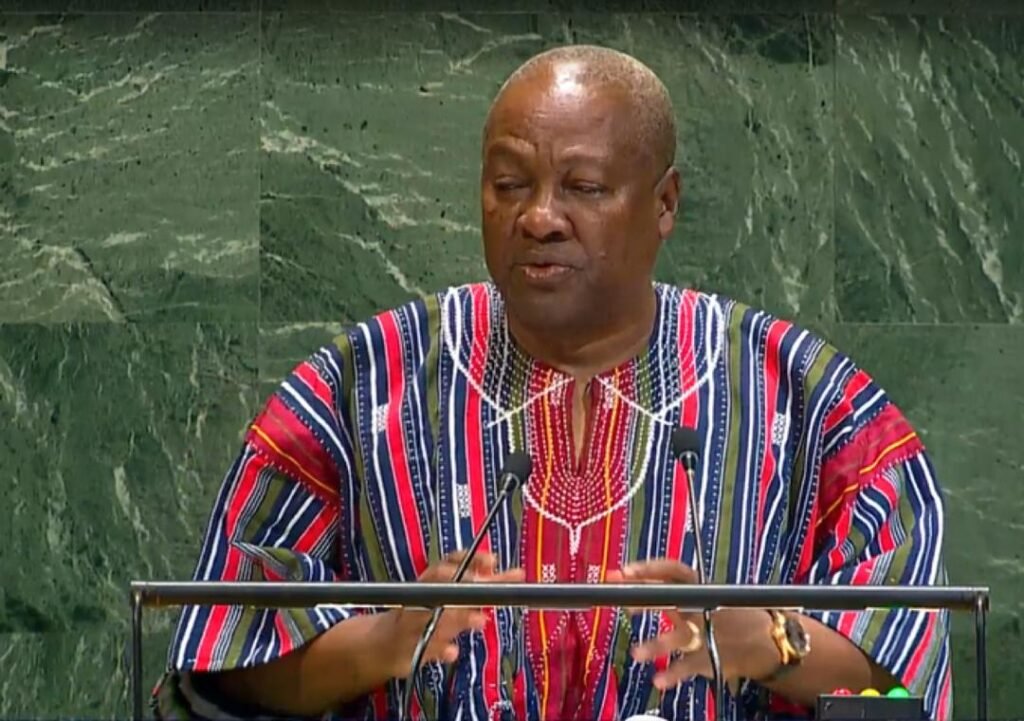
The President’s address at UNGA80 situates Ghana as a consistent advocate for fairness, justice, and peace in international affairs. His call for a two-state solution echoes a consensus long held but increasingly neglected amidst shifting geopolitical interests.
At the same time, his insistence on confronting humanitarian crises with consistency reflects Ghana’s broader commitment to multilateralism as the bedrock of global stability.
As the UN deliberations continue, President Mahama’s words stand as both a moral indictment of inaction and a call for renewed commitment to principles the world body was founded to uphold. His message was clear: the crimes in Gaza must end, Sudan’s refugees must not be forgotten, and the pursuit of justice must not be selective.
READ ALSO: GRIDCo Begins $353 Million Eastern Corridor Power Project Procurement



